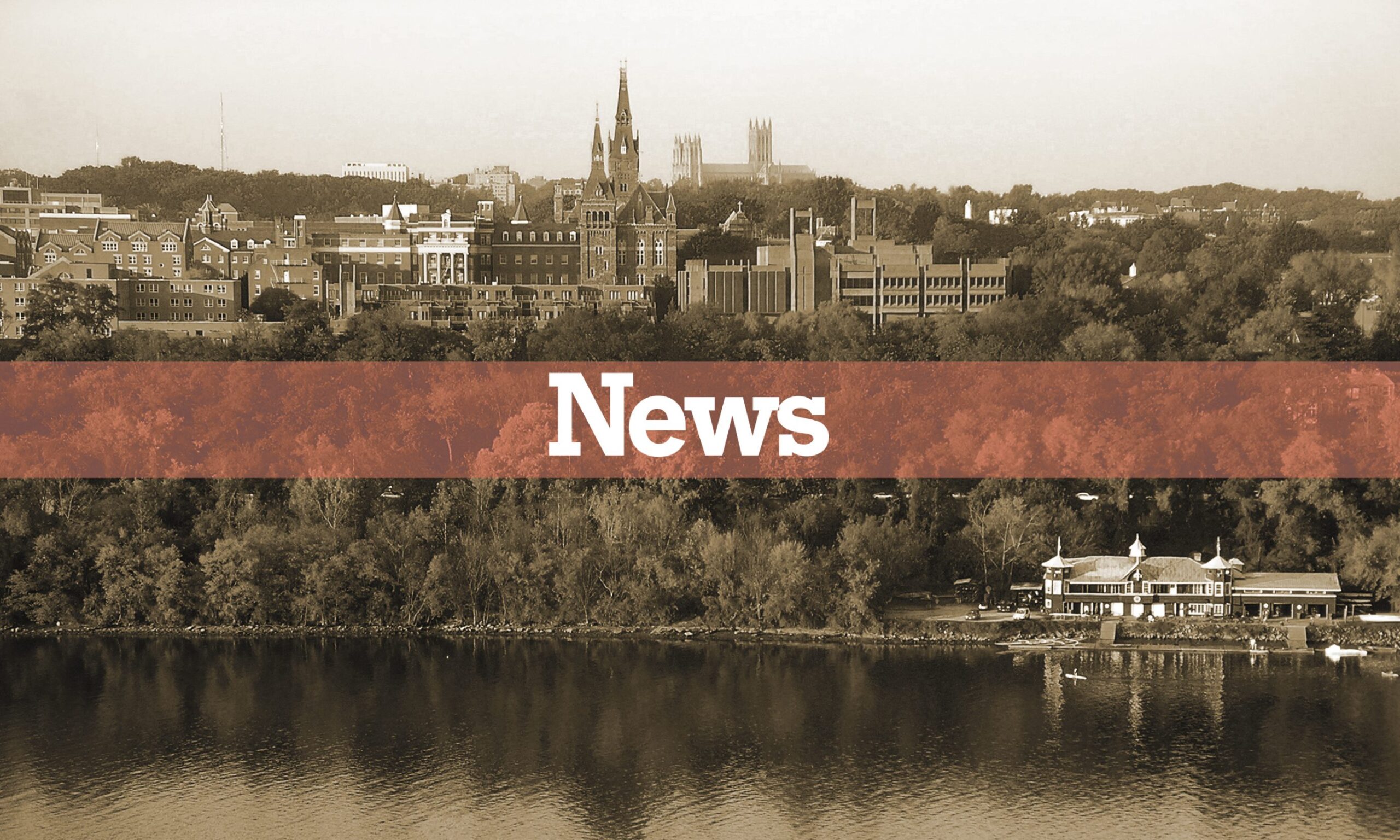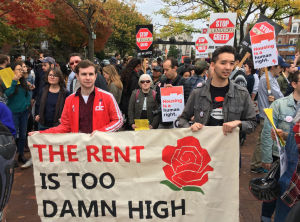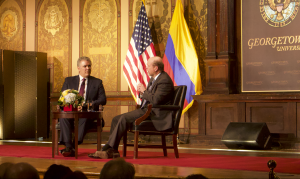The Department of African-American Studies and the Department of Performing Arts hosted the “Breaking Boundaries, Created Spaces” conference on Jan. 24 and 25 with the goal of exploring how black cultural identity, expression, and activism were constructed within an environment of inequality and oppression.
At the center of the conference was the inaugural Ella Jo Baker Distinguished Lecture, which was established with the objective of “recognizing an illustrious scholar, an outstanding performer, or an eminent community organizer” and “review[ing] African-Americans’ progress or challenges towards defining or realizing racial, social, or economic justice.”
The inaugural lecture was delivered by Barbara Ransby, a professor of history, gender and women’s studies, and African-American studies at the University of Illinois at Chicago. Ransby is also president of the National Women’s Studies Association.
As an undergraduate at Columbia University and as a graduate student at the University of Michigan, she was active in leading anti-apartheid campaigns and other racial justice movements. Ransby has published numerous articles on politics, black feminism, and civil rights, and she has also authored three books, including the biography Ella Baker and the Black Freedom Movement: A Radical Democratic Vision.
Rosemary Ndubuizu, a professor of African-American studies, introduced Ransby. Ndubuizu described Ransby as “one of the country’s leading scholars on race, gender, social justice, and social movements.” According to Ndubuizu, Ransby was selected as the inaugural lecturer because she “continues Ella Jo Baker’s tradition of ‘rigorous scholarship rooted in activism.'”
The lecture began with Ransby recounting how she was asked by the Georgetown Department of African-American Studies to discuss her “scholarship and activism as they relate to new spaces of resistance and radical training.”
“And I thought, what a seductive invitation,” said Ransby. “I come to you today … as a historian, but also as an activist.”
Ransby explained that she approaches academia as a way to “find out who we are, where we come from, and where we are going.” She stressed the importance of understanding the United States’ “troubled past, oppressed present, and possible revolutionary future.”
Analyzing the complex societal forces leading up to the election of President Trump, Ransby described nostalgia for the “good old days” as misplaced, explaining how American society has historically not only suppressed the rights of people of color, but also those of many poor white people. Ransby argued that elected officials’ current employment of “blatant” voter suppression and right-wing populism is central to the Trump administration’s efforts to maintain “radical capitalism.”
“Capitalism is a complex adaptive system that has reached the limit of its ability to adapt,” said Ransby.
Most importantly, Ransby argued, Trump’s election was a wake-up call that “liberal democracy has lost its status” as an arbitrator of fairness, justice, and equality. However, she also described seeing “hope and possibility” for the future as progressive activists make their voices increasingly heard.
Discussing civil rights activism, Ransby characterized last week’s Martin Luther King Jr. Day as “a spectacle of amnesia, avoidance, and outright revisionism.” She criticized how King’s radical efforts to fight for the voiceless and downtrodden had been largely overshadowed by trivialities such as “MLK Day mattress sales,” entreating the audience to remember that King was, at his core, someone who wanted to dismantle the “racialized economic hierarchy.”
Ransby also cautioned against simply waiting for a leader to take charge, explaining that figures like Martin Luther King Jr. understood that real power came from those at the bottom of society. “If we sit and wait for the next Messiah to save us, we will be sitting and waiting for a very long time.”
As a leading biographer of Ella Baker, Ransby described how Baker, who founded the Student Nonviolent Coordinating Committee in 1960 and led the Freedom Riders into the segregated South, also preferred a decentralized power structure within civil rights movements. She added that Baker amplified the voices of the marginalized by “building coalitions among progressives and the oppressed that spanned vast divides.”
Ransby then detailed her own involvement in the Movement for Black Lives and explained that the movement seeks to carry on Baker’s legacy through intersectional advocacy. This act of “political quilting,” Ransby explained, “demarcates a black political tradition that resonates powerfully today.”
In her parting words to the audience, Ransby recalled being in awe of individuals like Alexandria Ocasio-Cortez and Stacey Abrams in the 2018 midterm elections. Their progressive activism, Ransby declared, was a blueprint for the future of America: “Not demanding the impossible but creating new possibilities.”





